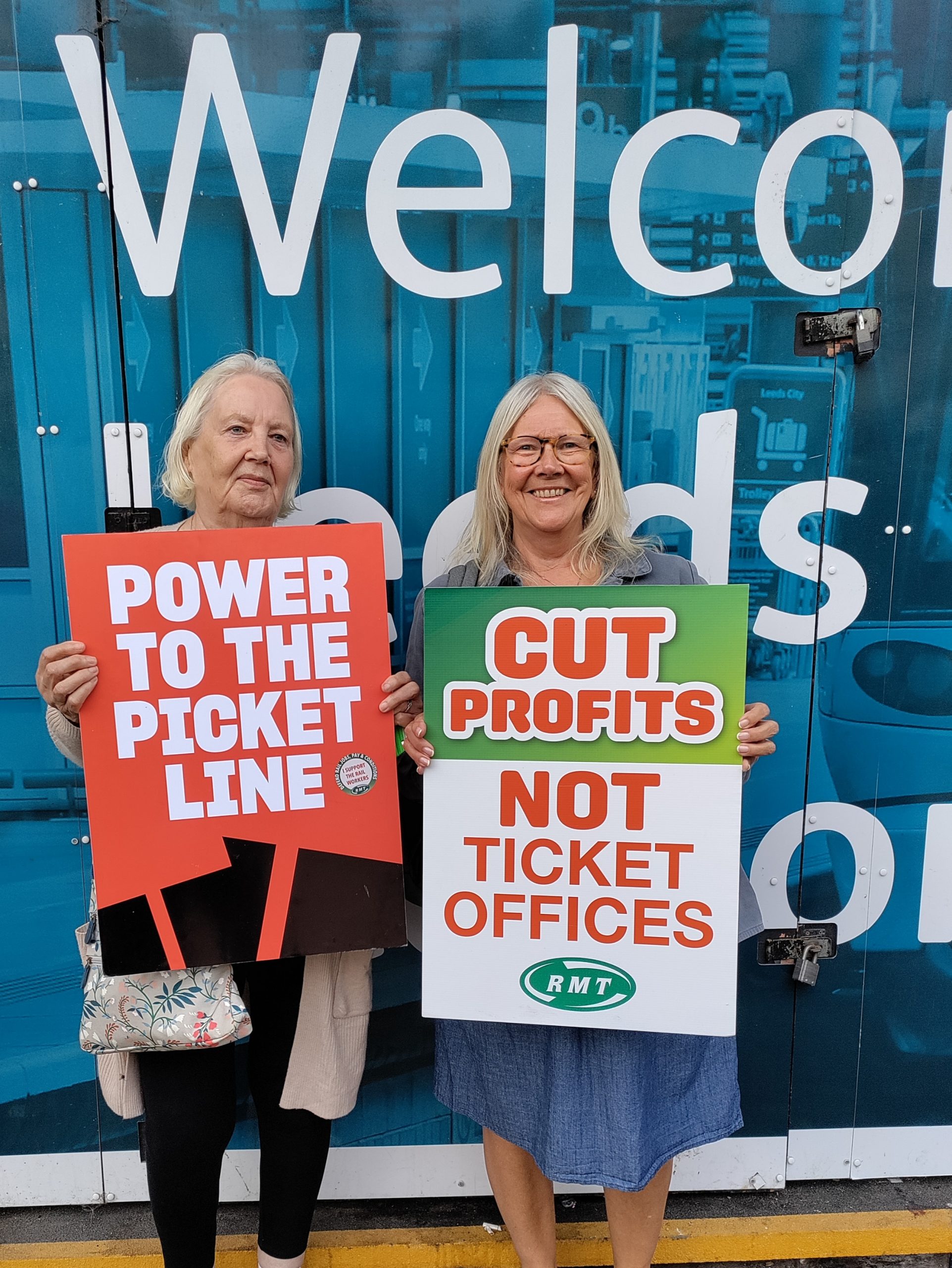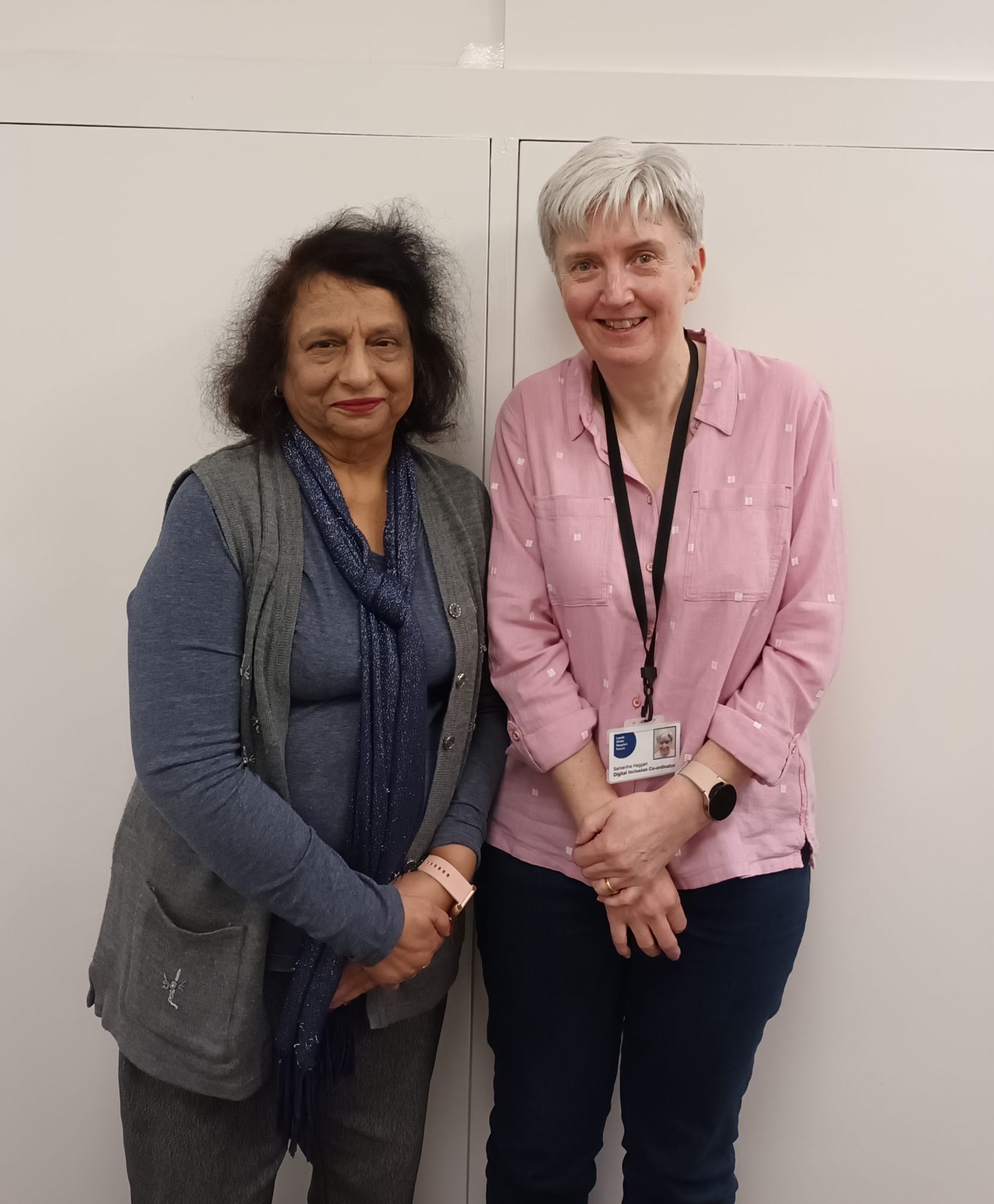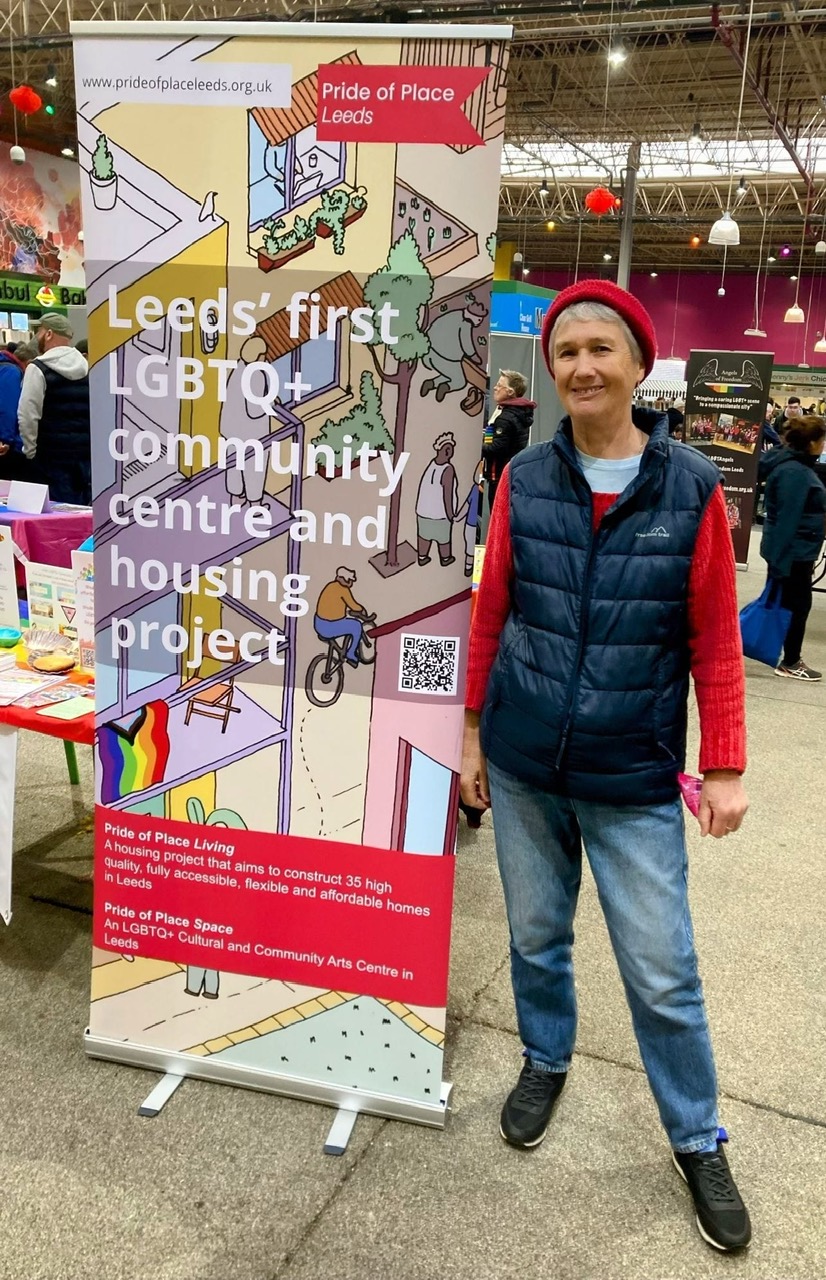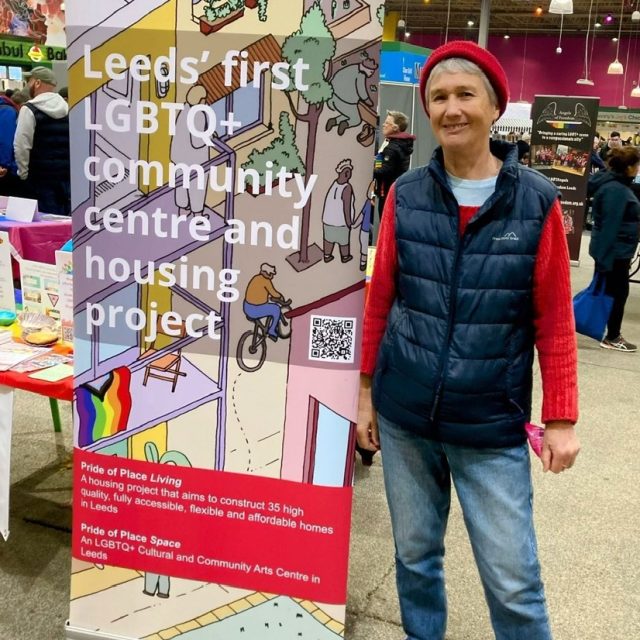It’s International Women’s Day. We want to mark it by highlighting the difference older female activists continue to make in our communities and to all our lives. We’re fortunate at LOPF to meet and work with many women who remain active, or perhaps return to or even begin activism as they age, into their 70s, 80s and beyond.
It can be strange to single out individuals, when there are so many individuals to choose from. The three women profiled here are all great examples of older women who are active and engaged in their communities.
“Whatever campaigns were going I would get involved” – meet Jan
A woman called Jan has always stuck in my mind since we both met Baroness Neville-Rolfe to tell her that raising the state pension age again would have many unintended consequences.
Jo Volpe
CEO, Leeds Older People’s Forum
What drives Jan is injustice – that’s what it’s always been about for her. And advocacy for people who are experiencing injustice.
Jan set up Leeds’ WASPI (Women Against State Pension Inequality) group in 2019, when she found out the city didn’t have one. It now covers West Yorkshire. Women are really engaged, and they’re not giving up until they get compensation from the government! Jan now moderates the national WASPI Facebook page with a small team of volunteers across the country.
Jan worked until she was 68 through choice and because she was in good health. Not all women are so lucky and are forced to work longer in poor health. On top of this many of Jan’s WASPI colleagues are caring for their parents, partners and family members while offering childcare to their grandchildren. All an incredible contribution to our communities.
As we talked it was really clear that what matters to Jan is local community campaigns. and how injustices or poorly thought through proposals, affect people ‘on the ground’. Looking at things as a whole can feel too big to tackle. Bringing it down to a local level and making it relevant to your local community, is how to make change.

Jan described how she, with her friend Margaret and a group of like-minded colleagues from the Unite Community, launched a campaign to save a local station ticket office from closure, which the government was proposing to do across the country. People struggled to think how they were going to cope, book tickets and get information, if the ticket office closed, especially older people with no access to IT. Interest grew at that one office. Ticket offices remain open. Thank you to Jan, your friends and the other activists who supported the RMT campaign to turn this decision around.
As Jan gets older it’s the different strands of campaigning that have changed. It used to be local poll tax campaigns; sticker-bombing Co-ops selling South African produce to stand up to apartheid, and starting local childcare provision for mature students. She’s always campaigned in support of the Palestinian people and has joined the weekly Saturday protests held in Leeds since October last year.
After Jan said how frustrating campaigning can be, with no solutions on the table, she reminded me of Bob Crow’s comment:
“If you fight you won’t always win. But if you don’t fight you will always lose.”
“Her journey symbolised the resilience and determination of women from diverse backgrounds, united to increase their digital skills and self-reliance.” – meet Amita
Amita was a participant on the digital media literacy course I taught. She is an inspiration for learners everywhere
Samantha Haggart
Digital Coordinator, Leeds Older People’s Forum
The Be Online, Stay Safe (BOSS) project was launched to address the growing need for digital media literacy among learners, particularly those with limited English proficiency. The project aimed to equip participants with essential skills to navigate the online world safely and effectively. Out of the 112 people who attended the course about two thirds were women. 72% of participants have English as a second language.

Among these learners was Amita, a member of the Sumangal Group based in Roundhay. Meeting weekly, the group provides a warm, welcoming space where approximately 50 members meet, enjoy activities and share meals.
In November 2023 Amita signed up to the BOSS course led by myself, and Huazhu Liu, Health for All Project Worker. 12 members joined the course, seven of whom were women . These women were all there for the same reason: they wanted to increase their independence to do things online, safely, without having to ask their family members.
Amita enjoyed learning each week. I was really proud of her when she came to tell me that she could send an email and had successfully forwarded information to her son. I could tell how important and empowering this was for her and her confidence and independence.
The tutors understood early on that the BOSS project wasn’t just about imparting technical know-how; it was about fostering confidence, independence, and empowerment. Amita’s journey symbolised the resilience and determination of women from diverse backgrounds, united to increase their digital skills and self-reliance.
As she continues to navigate the online world with new found confidence, Amita is an inspiration for learners everywhere, proving that with the right support and determination, anything is possible. She continues to encourage others to believe that they are never too old to learn new skills.
“I try not to feel guilty about what I’m unable to do and to celebrate what I can do” – meet Susan.
I first met Susan in the mid-80s when she was extremely supportive to a group I was in to plan training for a helpline. We then worked together on a campaign through our respective CABs. Fast forward, and she was one of the faces of our Age Proud Leeds campaign. She is now Vice Chair of LOPF.
Rob Cook
Communications Officer, LOPF
Susan remains engaged and involved in a range of community activities and campaigns. While these include anything to improve the lives of LGBTQ+ people, older and isolated people locally, Susan is also actively concerned about the state of the wider world: poverty, war, oppression, occupation, inequalities, privilege, environment.

Susan tries to keep up to date, signs petitions, and attends demonstrations, but says that sometimes she becomes overwhelmed. Despite that, Susan is someone who is prepared to take on responsibilities, with a number of roles within her communities. As well as being Vice Chair of LOPF, Susan is an Age Friendly Ambassador. She is also Chair of Pride of Place Leeds Ltd (leading on Pride of Place Space and active on Pride of Place Living) and Chair of Leeds LGBTQ+ Community Consortium. In terms of taking on a different kind of responsibility, Susan is a part-time foster carer, and proud to have a daughter who is a feminist, anti-racist, a good ally to the queer community and continues the work for a better world for all.
So what motivates Susan? She sees it as coming from a sense of belonging, which sits alongside a strong recognition of oppression, power imbalance and a “belief that we can all contribute something to making our world a better place for all to live in.” Underpinning it, Susan says she was brought up with a social conscience, largely from longstanding Quaker families on both sides.
And what has changed for Susan in her activism, as she has got older?
She thinks she’s gained a little more wisdom, is more reflective and less impulsive; therefore less likely to be so strident. And feels perhaps that her views are now more palatable to those who don’t wholly share them.
She finds it easier to recognise her own failings, say sorry and make amends.
While recognising that she may be slower and therefore able to achieve a little less, Susan tries not to feel guilty about what she is unable to do and to celebrate what she can do. That would surely be a positive way for all of us to live.
